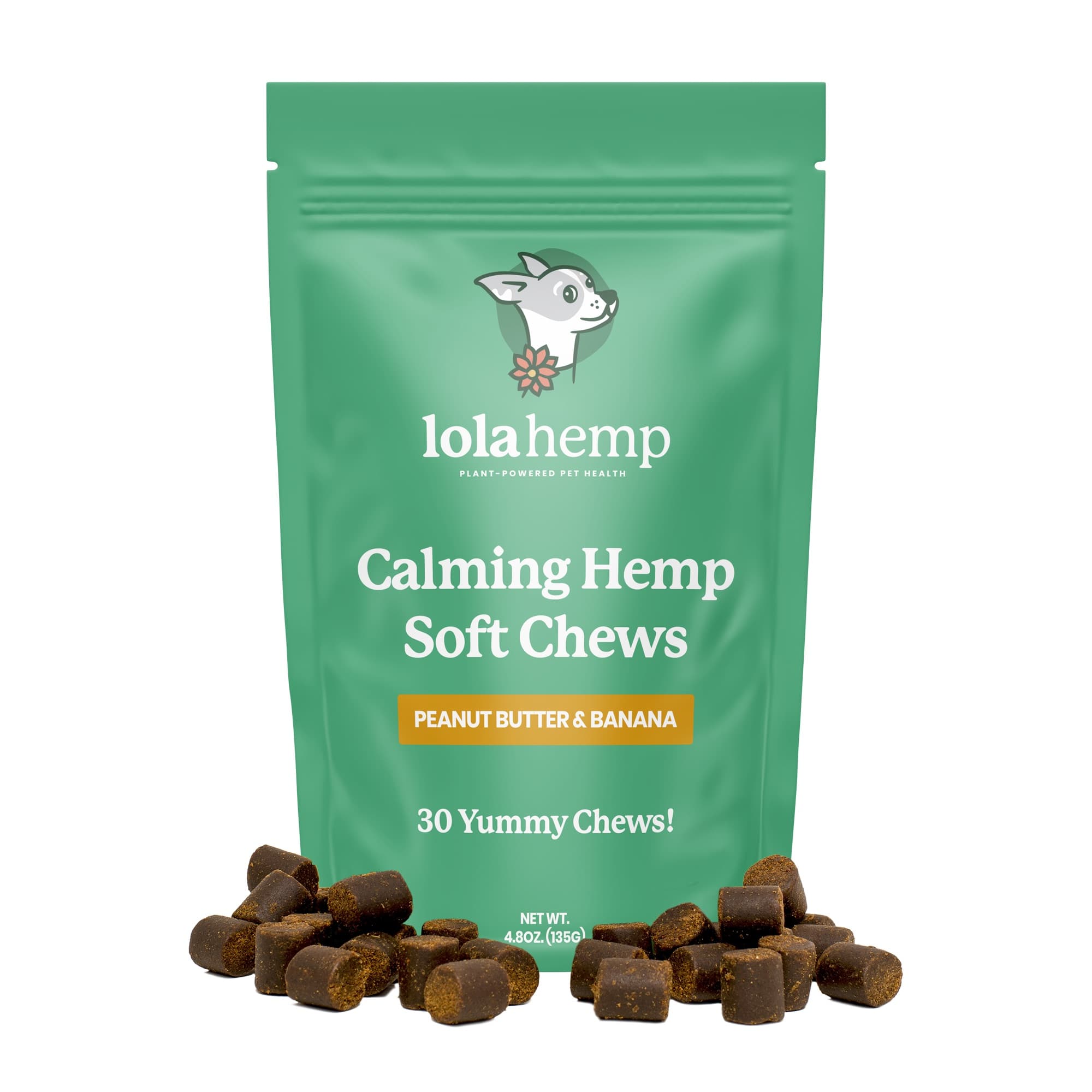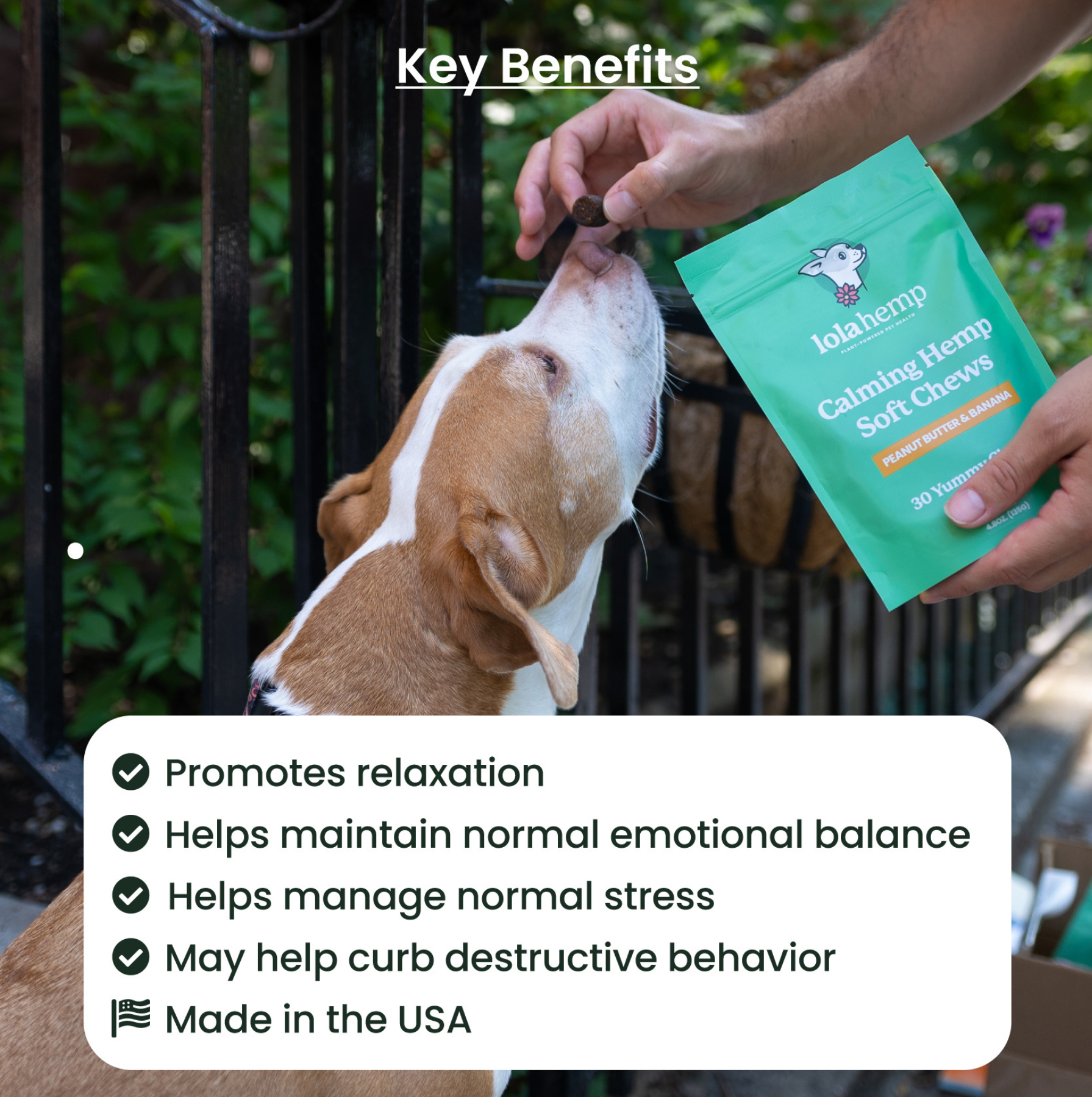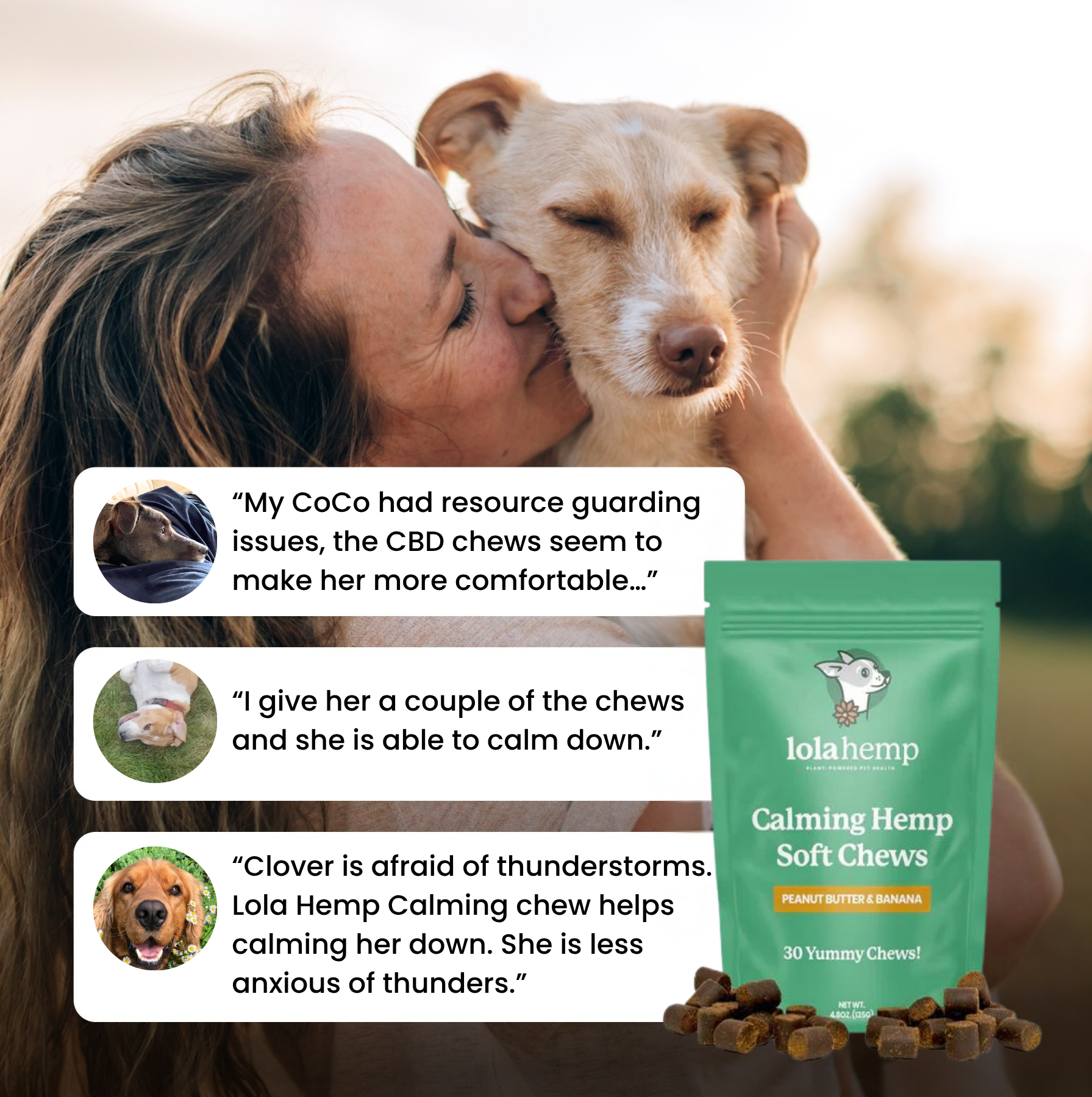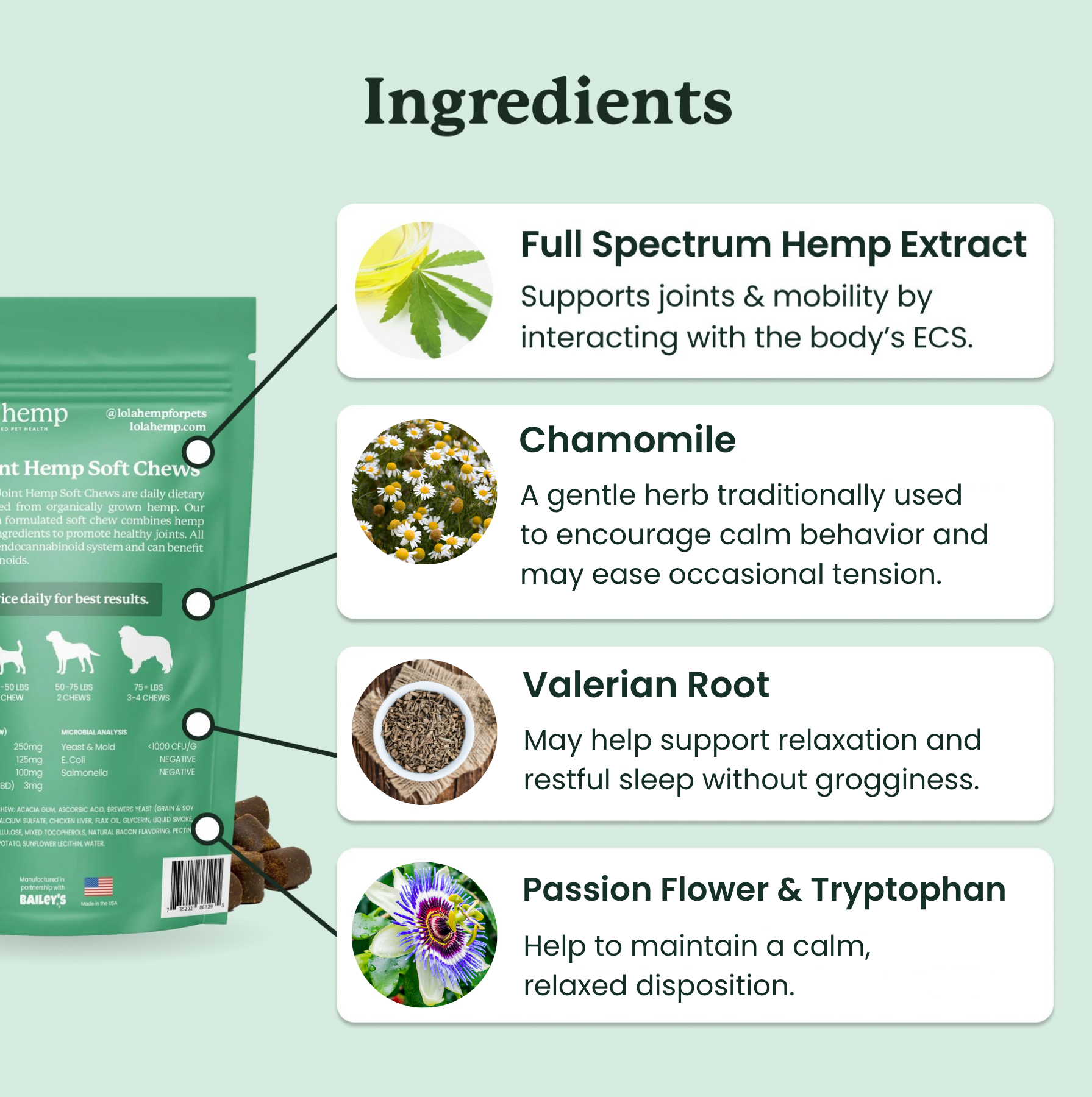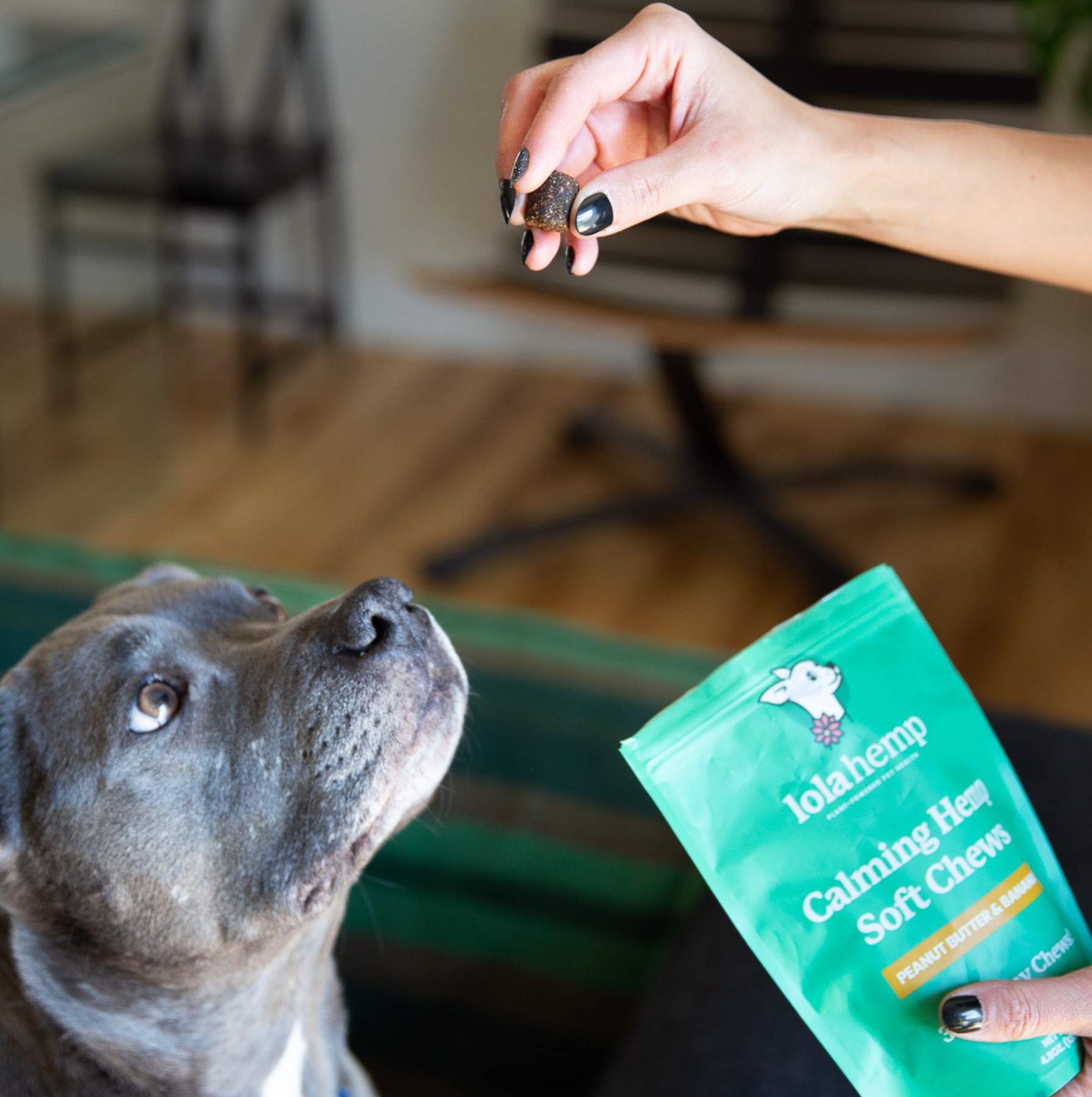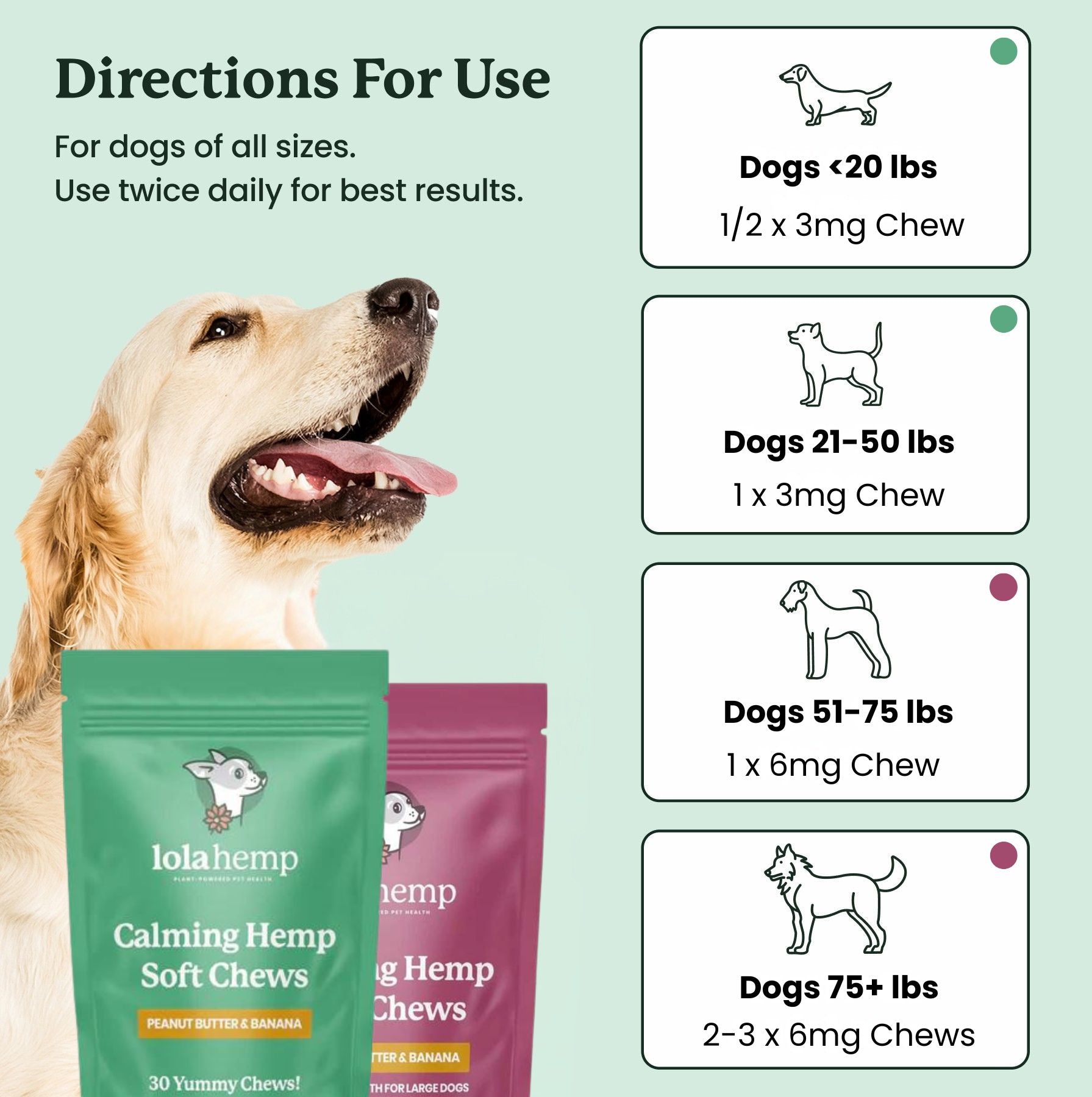CBD dog calming treats have become a go-to solution for pet owners looking to help their dogs stay relaxed in stressful situations. These treats offer a natural way to promote calmness and well-being without the potential side effects of sedatives or prescription medications. But how do they work, and what should you know before giving them to your furry friend?
In this guide, we’ll cover everything you need to know about CBD calming treats for dogs, including how they compare to CBD oil, their benefits, safety, proper dosage, and how to choose the best product for your pet.
- What Are CBD Dog Calming Treats?
- CBD Treats vs. CBD Oil: What’s the Difference?
- How Does CBD Support Dogs?
- Is CBD Safe for Dogs?
- Reasons to Use CBD Calming Treats
- How to Choose the Best CBD Dog Treats
- How Much CBD Should You Give Your Dog?
- Conclusion
- Frequently Asked Questions About CBD Dog Calming Treats
What Are CBD Dog Calming Treats?
CBD dog calming treats are edible supplements infused with cannabidiol (CBD), a natural compound derived from the hemp plant. These treats are designed to promote relaxation and balance in dogs, particularly during times of stress, such as:
- Fireworks and thunderstorms
- Travel and car rides
- Vet visits or grooming sessions
- Separation from owners
- Changes in routine or new environments
Unlike traditional anti-anxiety medications, CBD does not sedate your dog but instead helps regulate the body's natural processes to support a calm state.
CBD Treats vs. CBD Oil: What’s the Difference?
Many pet owners wonder if CBD treats are different from CBD oil. The main difference is the form and administration:
- CBD Oil: Comes in a liquid form, usually with a dropper, and is administered directly into the dog's mouth or mixed with food. It absorbs faster and allows for more precise dosing.
- CBD Treats: Pre-measured, chewable snacks infused with CBD. These are easier to give to dogs, especially those who don’t tolerate oil well. However, they may take longer to take effect as they must be digested first.
Which One Is Better?
Both options are effective, but CBD treats are ideal for convenience—especially for dogs who resist oils or for on-the-go situations like travel.
How Does CBD Support Dogs?
CBD interacts with a dog's endocannabinoid system (ECS), which plays a role in regulating:
- Mood and stress responses
- Sleep cycles
- Pain perception
- Immune function
By supporting the ECS, CBD helps maintain balance in the body, promoting relaxation and emotional stability in dogs without making them drowsy or altering their personality.
Is CBD Safe for Dogs?
Yes, CBD is generally safe for dogs when given in appropriate doses. Unlike THC (the psychoactive compound in cannabis), CBD does not produce a “high” or intoxicating effects.
Potential Side Effects
While CBD is well-tolerated in most dogs, some potential mild side effects include:
- Temporary drowsiness
- Dry mouth (increased thirst)
- Loose stools (if given in high doses)
One key consideration is that CBD can interact with medications. It affects an enzyme called cytochrome P450, which plays a role in metabolizing certain drugs. If your dog is on medication, consult your vet before introducing CBD.
Reasons to Use CBD Calming Treats
CBD calming treats are a popular option for pet owners because they offer several benefits:
1. Convenient and Travel-Friendly
Whether you’re going on a road trip, visiting the vet, or boarding your dog, CBD treats are an easy way to provide extra support. Unlike oils, they don’t require measurement—just grab and go.
2. Simple to Administer
CBD chews taste like regular treats, making them an easy option for dogs who are picky eaters or dislike having oil placed in their mouth.
3. Great for Training and Reinforcement
CBD treats can be used during training sessions to reinforce positive behavior while also helping keep your dog calm and focused.
4. Longer-Lasting Effects
Since CBD treats take longer to digest than oil, their effects may last several hours, making them useful for extended stressful events like fireworks or travel.
How to Choose the Best CBD Dog Treats
Not all CBD treats are created equal. Here’s what to look for when shopping for a high-quality product:
✅ Check the CBD Source
Look for treats made with hemp-derived CBD that is organic and free from pesticides. High-quality hemp ensures better safety and effectiveness.
✅ Look for Third-Party Testing
Reputable brands test their products in independent labs to confirm CBD potency and purity. Always check for a Certificate of Analysis (COA) to verify that the treats contain no harmful additives, heavy metals, or pesticides.
✅ Choose Full-Spectrum or Broad-Spectrum CBD
- Full-spectrum CBD: Contains all natural cannabinoids, terpenes, and beneficial compounds from hemp, enhancing the overall effects.
- Broad-spectrum CBD: Similar to full-spectrum but without THC. This is ideal if you want to avoid even trace amounts of THC.
✅ Watch for Unnecessary Fillers
Avoid treats with artificial preservatives, colors, or excessive sugar. Ingredients like organic peanut butter, coconut flour, and chamomile can enhance health benefits.
How Much CBD Should You Give Your Dog?
The correct CBD dosage depends on your dog’s weight and the reason for use. Here’s a general guide:
| Dog Weight | Mild Support | Moderate Support | Strong Support |
|---|---|---|---|
| Under 20 lbs | 2-5 mg | 5-10 mg | 10-15 mg |
| 20-50 lbs | 5-10 mg | 10-20 mg | 20-30 mg |
| 50+ lbs | 10-20 mg | 20-40 mg | 40+ mg |
- For daily wellness: Start with the lowest dose and increase gradually.
- For stressful events (fireworks, travel, vet visits): Give CBD 30-60 minutes before the event.
Monitor your dog’s response and adjust the dosage as needed. If unsure, consult your vet.
Conclusion
CBD calming treats are a safe, natural, and easy-to-use option for helping dogs feel more relaxed during stressful situations. They provide long-lasting support, are easy to administer, and come in dog-friendly flavors that pets love.
By choosing a high-quality product, using the right dosage, and planning administration ahead of time, you can help your dog stay comfortable and at ease—whether it’s fireworks, travel, or everyday stressors.
If you're new to CBD, start with a low dose, monitor your dog’s response, and always check with your vet if you have concerns. With the right approach, CBD calming treats can be a great addition to your dog's wellness routine, providing a sense of calm when they need it most.
Frequently Asked Questions About CBD Dog Calming Treats
How do CBD calming treats help dogs relax?
CBD calming treats support the endocannabinoid system, which helps regulate mood and stress responses. This promotes relaxation without sedating your dog or changing their personality.
Are CBD calming treats safe for all dogs?
Most dogs tolerate CBD well when given at the correct dosage. However, it can interact with some medications, so always consult your veterinarian before starting CBD, especially for dogs on prescription drugs.
How long do CBD calming treats take to work?
CBD treats usually take 30–60 minutes to take effect since they must be digested. Their effects can last several hours, making them great for long-lasting calm during stressful events.
Can I give my dog CBD treats daily?
Yes. Many pet owners use CBD calming treats daily for ongoing anxiety or general wellness. Start with a low dose and monitor your dog’s response, adjusting gradually as needed.
What should I look for when buying CBD treats for dogs?
Choose treats made with organic, hemp-derived CBD that have third-party lab testing and no artificial ingredients. Full- or broad-spectrum options offer the most complete benefits.

